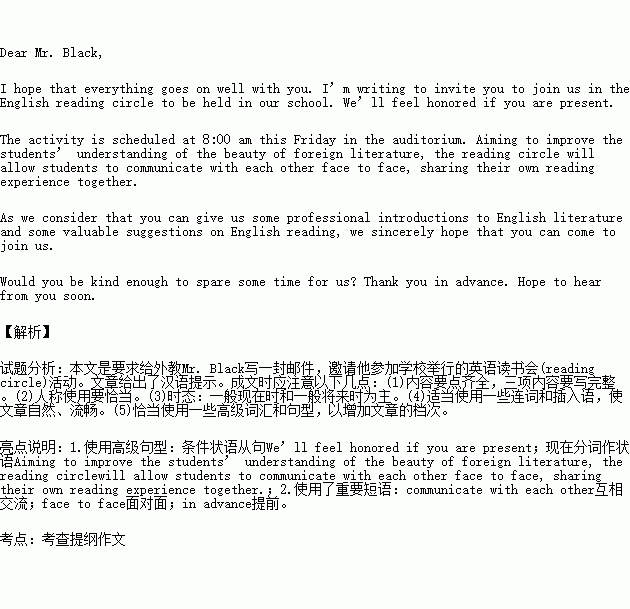题目内容
假设你是红星中学高三学生李华,请给你的外教Mr. Black写一封邮件,邀请他参加你们学校举行的英语读书会(reading circle)活动,邮件的内容包括:
1. 介绍读书活动的相关信息(例如:时间、地点、活动目的、内容等);
2. 说明你发出邀请的原因;
3. 询问对方的意向。
注意: 1. 词数不少于100词;
2. 开头和结尾已给出,不计入总词数。
Dear Mr. Black,
_______________________________________________________________________________
_______________________________________________________________________________
_______________________________________________________________________________
_______________________________________________________________________________
_______________________________________________________________________________
_______________________________________________________________________________
_______________________________________________________________________________
_______________________________________________________________________________
_______________________________________________________________________________
_______________________________________________________________________________
Yours,
Li Hua

